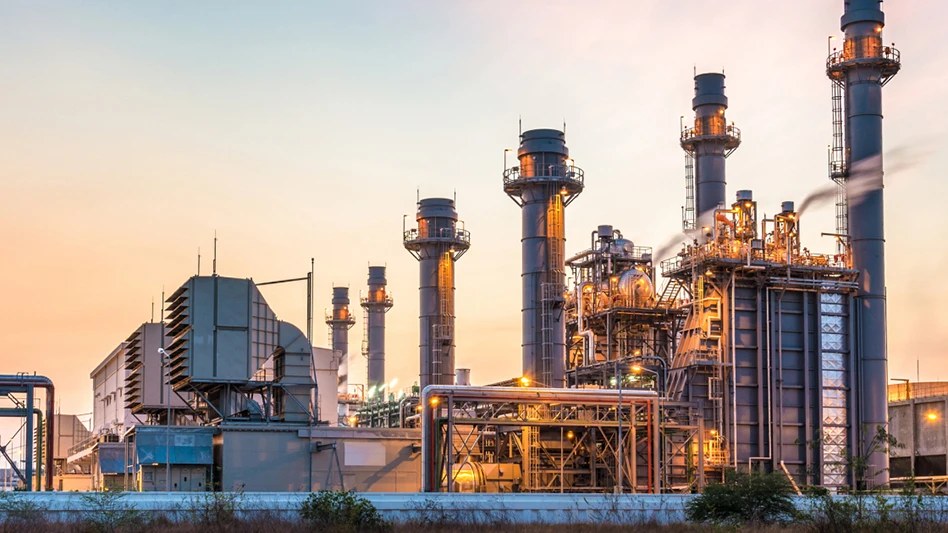
Photo courtesy of the OECD Global Forum on Steel Excess Capacity
Representatives from about two dozen members of the Paris-based Organization of Economic Cooperation and Development (OECD) have adopted a Ministerial Statement regarding global steel overcapacity.
At this week’s ministerial meeting of the Global Forum on Steel Excess Capacity (GFSEC), an OECD committee, participants from 25 nations plus the European Union also referred to previous GFSEC and predecessor committee statements, including one from June 2023, in which they expressed “grave concerns" about global steel excess capacity and concluded this trend has since deteriorated with "a detrimental impact on their respective steel industries.”
The GFSEC member nations participating included 17 European countries, plus Australia, Brazil, Canada, Japan, South Korea, Turkey and the United States. A representative from Ukraine observed the proceedings, along with observers from three Association of Southeast Asian Nations (ASEAN) countries: Malaysia, the Philippines and Thailand.
According to the OECD group in its latest statement, “Global steel excess capacity increased to 551 million metric tons (MMT) in 2023, exceeding the steel production of all GFSEC members combined, which stood at 478 MMT.”
While national steel industry trade groups and steel producing companies have identified the People’s Republic of China (PRC) as a leading source of excess capacity, the GFSEC does not do that in its October opening statement.
Instead, the OECD group refers to global excess capacity as being fueled particularly by the nonmarket policies and practices of certain countries, including investment by their state-owned enterprises.
Later in its report, however, the GFSEC writes, “China, the world’s largest steel producer, has doubled its exports between 2020 and 2024, reaching similar net export levels as during the steel crisis in 2016. The impacts and responses to rising excess capacity-driven exports are increasingly felt at the global level and beyond GFSEC borders as well.”
Regarding techniques that produce overcapacity, the GFSEC writes, “This includes government support measures that distort markets and diminish competition in a manner that is inconsistent with market-based conditions. Excess steelmaking capacity and resulting global trade distortions tilt the playing field toward inefficient producers, which disadvantages market-based, efficient and sustainable production.
“Excess capacity remains a significant and growing structural problem, with surging exports of steel from countries that are sources of excess capacity. Notably, these exports are increasingly circumventing legitimate trade defense measures, causing further injury to domestic industries and undermining government efforts to address unfair competition.”
The forum does not see help as looming on the horizon.
“The troubling upward trajectory of global excess capacity will persist,” the GFSEC says. “With numerous capacity additions in progress, excess capacity is now set to rise to 630 MMT by 2026.”
The OECD report was issued the same day the U.S. Department of Commerce (DOC) released a brief summary of an October phone conversation between U.S. Secretary of Commerce Gina Raimondo and Wang Wentao, the minister of commerce of the PRC.
According to the DOC, during the call Raimondo noted ongoing concerns from the U.S. business community about decreasing regulatory transparency in the PRC, nonmarket policies and practices and structural overcapacity in a range of industrial sectors.
While steel is not mentioned by name in the summary, the reference to overcapacity likely ties into the same concerns referred to in the OECD report.
According to the DOC, Raimondo “reemphasized that the U.S. government’s ‘small yard, high fence’ approach aims to safeguard U.S. national security in as targeted a manner as possible while leaving space for healthy trade and investment. The two sides agreed to maintain an open channel of communication in the coming months.”
The entire OECD report is available via the GFSEC website.
Latest from Recycling Today
- Unifi launches Repreve with Ciclo technology
- Fenix Parts acquires Assured Auto Parts
- PTR appoints new VP of independent hauler sales
- Updated: Grede to close Alabama foundry
- Leadpoint VP of recycling retires
- Study looks at potential impact of chemical recycling on global plastic pollution
- Foreign Pollution Fee Act addresses unfair trade practices of nonmarket economies
- GFL opens new MRF in Edmonton, Alberta






